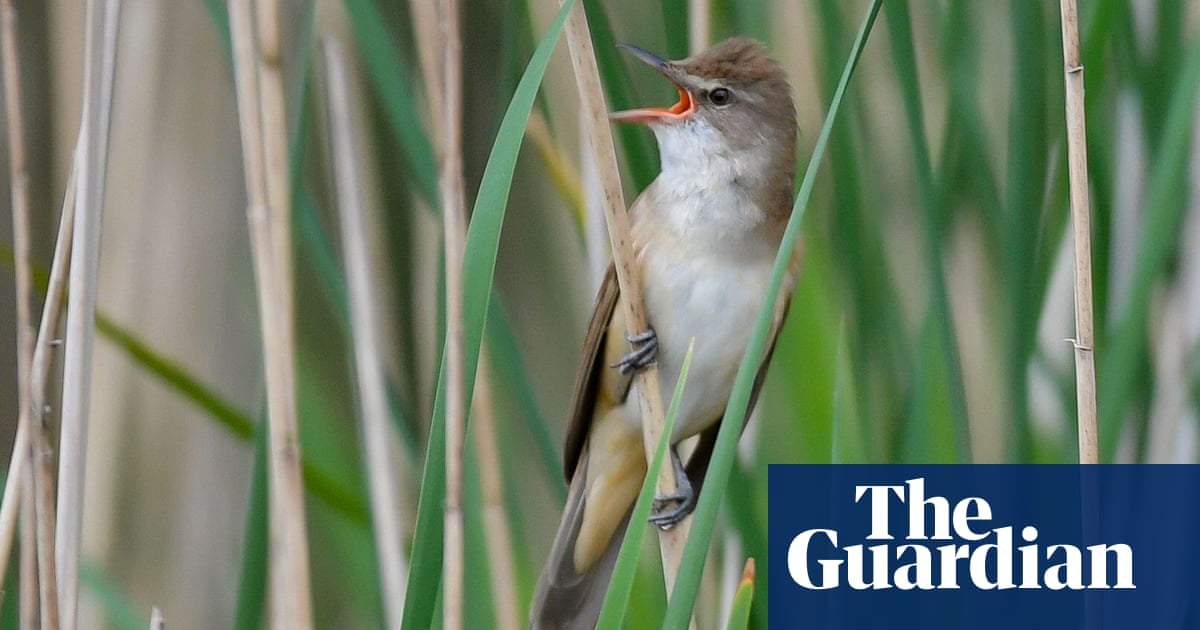
The song emerged from deep in the heart of the reedbed. It sounded like a reed warbler on steroids: that same, familiar rhythm, but an octave lower than usual.
Almost the size of a song thrush, the great reed warbler is the Erling Haaland of the warbler family, who makes its smaller, more delicate cousins appear puny by comparison. When he momentarily materialised in the centre of the reeds, I managed to get a brief but satisfying view. Meanwhile, the waiting crowd of birders frantically clicked their cameras like paparazzi chasing a celebrity.
Like its smaller and much commoner cousin, the great reed is rufous brown above and pale buff below, with a whitish throat. The main difference is the stonking bill, from which emerged that extraordinary song, as if the volume had been turned up to 11.
I’ve seen and heard great reed warblers before – in France and Spain, and a couple of times in Britain – but never near my Somerset home. This bird, at the RSPB’s Ham Wall reserve, had been returning to continental Europe from his winter quarters south of the Sahara, when he overshot his intended destination.
Like the river warbler that appeared here a couple of years ago, he might not find a mate, but his appearance may be a sign that the species is on the brink of colonising southern Britain, some time soon.












